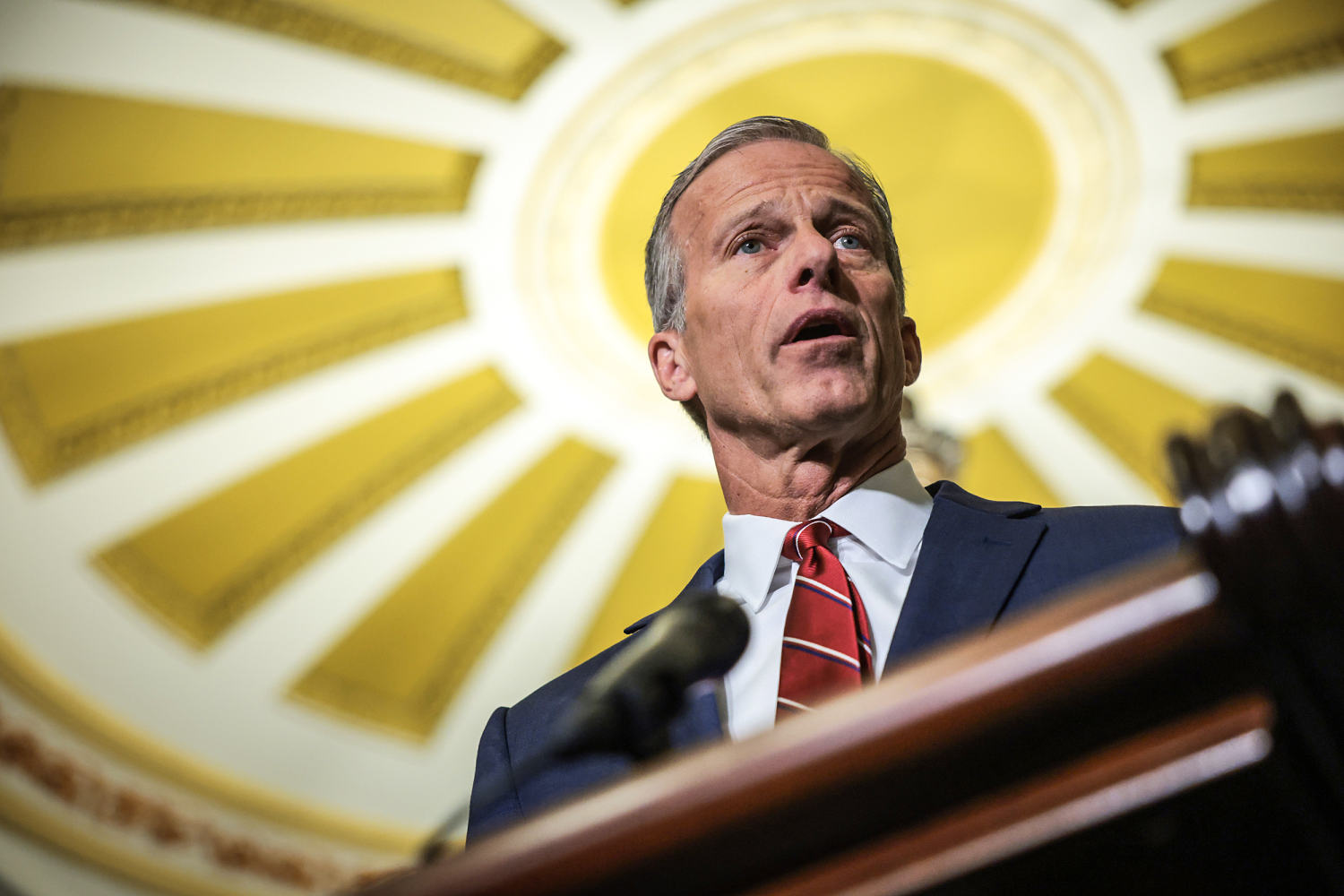Senate Republicans are racing to consider a compromise budget resolution as they look to advance President Trump’s legislative agenda, with a vote potentially taking place this week.
House and Senate Republicans each adopted their own budget blueprints last month, with the lower chamber moving forward with “one big, beautiful bill,” as Trump refers to it, and the upper chamber utilizing a two-track strategy. Top Republicans have been working to reconcile the two visions ever since.
Senate Majority Leader John Thune (R-S.D.) signaled that his ranks could consider the compromise measure this week, which would require a vote-a-rama. One large wild card, however, is when — and how — the Senate parliamentarian rules on whether Republicans can use the current policy baseline, the budgetary gimmick that leaders are hoping to utilize to make the 2017 Trump tax cuts permanent.
Also this week, the House is scheduled to consider a bill that would restrict the power of district court judges to issue injunctions after Trump, Elon Musk and GOP lawmakers sounded the alarm over a move by a judge that prevented the administration from deporting Venezuelan migrants.
The House may also vote on a resolution that seeks to allow parental proxy voting, after Rep. Anna Paulina Luna (R-Fla.) successfully executed a discharge petition to force action on the measure despite Speaker Mike Johson’s (R-La.) strong opposition. Additionally, the House Task Force on the Declassification of Federal Secrets, led by Luna, is slated to hold a hearing on the files related to the assassination of former President John F. Kennedy.
Senate GOP eyes vote on compromise budget blueprint
The Senate could vote on an emerging compromise budget resolution as soon as this week — a timeline Thune has indicated is possible — though a number of key questions remain as the chamber looks to move forward on an agreed-upon framework.
The biggest unknown is whether Republicans can utilize the current policy baseline in the reconciliation process, which would allow the party to permanently extend Trump’s 2017 tax cuts without adding to the deficit.
The Senate parliamentarian must rule on whether or not the gimmick is permissible before the upper chamber votes on the compromise budget resolution.
Regardless of the outcome, the parliamentarian's ruling will be significant. If she allows the current policy baseline to be used, Republican leaders in both chambers will have to convince some fiscal hawks to back the effort despite their skepticism. If she rules that it cannot be used, however, GOP leaders will be forced back to square one in determining how to make the tax cuts permanent.
Aside from the uncertainty surrounding the current policy baseline, Republicans must also grapple with how much spending cuts they include in the compromise budget resolution. The House GOP’s blueprint called for at least $1.5 trillion in cuts with a target of $2 trillion. Those levels direct the Energy and Commerce Committee to find at least $880 billion in cuts, which many believe will require slashes to Medicaid — a detail that is prompting concern among Republicans in both chambers.
In one bright spot for the party, however, the conferences appear ...













